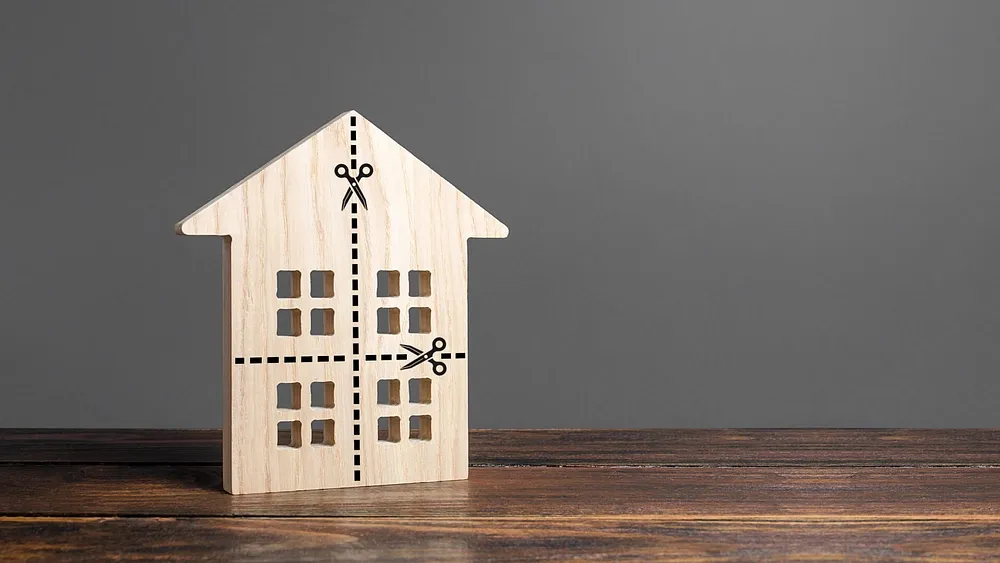Signature Collection
Explore SignatureJoint ownership of property in Dubai offers a strategic avenue for individuals seeking to invest collaboratively in the emirate's dynamic real estate market. Understanding the various facets of joint property ownership is essential for making informed decisions and ensuring compliance with local regulations.
Types of Joint Ownership
In Dubai, joint property ownership is primarily structured in two forms:
Joint Tenancy
This arrangement allows up to four individuals to own a property collectively, with each holding an equal share. A key feature of joint tenancy is the right of survivorship, meaning that upon the death of one owner, their share automatically transfers to the surviving co-owners, bypassing probate procedures. This structure is commonly favored by couples, family members, and business partners who desire a seamless transfer of ownership.
Tenancy in Common
Under this model, co-owners can hold unequal shares in the property. Unlike joint tenancy, there is no right of survivorship; instead, each owner's share can be bequeathed to heirs or beneficiaries as specified in their will. This option provides greater flexibility in terms of ownership distribution and estate planning.
Regulations Governing Joint Ownership
Dubai's legal framework for jointly owned properties is outlined in Law No. (6) of 2019 Concerning Ownership of Jointly Owned Real Property in the Emirate of Dubai. This legislation mandates that developers register jointly owned real property with the Dubai Land Department (DLD), including detailed plans and declarations. The law delineates the responsibilities of owners, developers, and management entities, ensuring transparent governance of jointly owned properties.
Benefits of Joint Ownership
Opting for joint ownership in Dubai presents several advantages:
- Resource Pooling: Co-owners can combine financial resources to invest in high-value properties that might be unattainable individually.
- Diversification: Joint ownership allows investors to diversify their real estate portfolio, mitigating risks associated with single ownership.
- Estate Planning: Structures like joint tenancy facilitate the straightforward transfer of ownership upon death, simplifying estate management.

Process of Establishing Joint Ownership
To establish joint ownership in Dubai, the following steps are typically undertaken:
- Agreement Formation: Prospective co-owners should draft a comprehensive agreement outlining the terms of ownership, financial contributions, and management responsibilities.
- Property Selection: Choose a property in Dubai that aligns with the collective objectives of the co-owners.
- Legal Consultation: Engage legal experts to ensure the ownership structure complies with Dubai's regulations and to facilitate the drafting of necessary documents.
- Registration: Register the jointly owned property with the DLD, specifying the type of joint ownership and the shares of each co-owner.
Tips for Prospective Joint Owners
- Clear Communication: Maintain open and transparent communication among co-owners to prevent misunderstandings.
- Defined Exit Strategies: Establish protocols for scenarios where a co-owner wishes to sell their share, ensuring alignment with Dubai property ownership rules.
- Regular Reviews: Periodically review the joint ownership agreement to accommodate any changes in circumstances or objectives.
Joint ownership of property in Dubai offers a viable pathway for shared investment, combining resources to capitalize on the city’s lucrative real estate market. By understanding the types, regulations, benefits, and processes associated with joint ownership, investors can make informed decisions that align with their financial goals. Collaborating with a distinguished real estate firm like Provident Estate can further streamline the process, providing expert guidance tailored to the unique dynamics of Dubai's property landscape.
FAQs
Yes, Dubai permits joint ownership of property, allowing up to four individuals to co-own a single property.
Property ownership in Dubai is governed by specific laws that outline the rights and responsibilities of owners, including regulations for joint ownership structures.
Joint owners must establish a clear agreement detailing ownership shares, responsibilities, and management protocols, and register the property with the Dubai Land Department.
Joint ownership allows multiple parties to collaboratively invest in property, facilitating shared financial responsibility and combined resource utilization.
Joint tenancy involves equal ownership shares with a right of survivorship, whereas tenancy in common allows for unequal shares without automatic transfer upon death.
Yes, a joint owner can sell their share, but the process and implications depend on the type of joint ownership and the terms outlined in the ownership agreement.
Foreigners can own property in designated freehold areas in Dubai, either individually or jointly, subject to local laws and regulations.
Disputes are typically addressed through the terms specified in the joint ownership agreement; if unresolved, legal recourse may be sought through Dubai's judicial system.
The exit process should be defined in the joint ownership agreement, detailing procedures for selling or transferring the departing owner's share.
Yes, joint ownership is a common strategy among investors aiming to pool resources and share the financial responsibilities of property investment in Dubai.
For more information, get in touch with us at Provident
 Apartments
Apartments Villas
Villas Townhouses
Townhouses Penthouses
Penthouses Commercial
Commercial See All Properties
See All Properties Commercial
Commercial Property Management
Property Management List Your Property
List Your Property Mortgages
Mortgages Conveyancing
Conveyancing Short Term Rentals
Short Term Rentals Property Snagging
Property Snagging Partner Program
Partner Program Currency Exchange
Currency Exchange PRYPCO
PRYPCO Ethnovate
Ethnovate Plots
Plots
